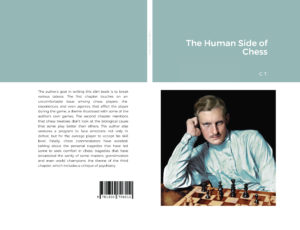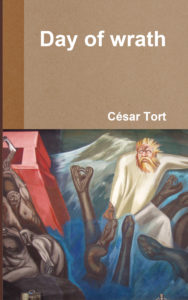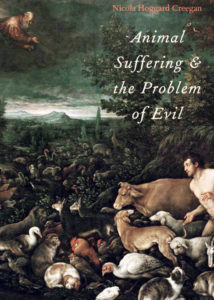and the Sun, 1
I will start adding my aggregations to some passages from Savitri Devi’s most famous book. The priestess was a sort of female counterpart of what I now call ‘priest of the sacred words’.
I refer to two sentences of four words each, one in Latin, and one in Spanish (I came up with the last one): Gens alba conservanda est—‘The white race must be preserved’—and Eliminemos todo sufrimiento innecesario—‘Let us eliminate all unnecessary suffering’: aesthetics and ethics.
Savitri Devi published The Lightning and the Sun the year I was born. Like her, I believe that National Socialism, as devised by Hitler, is not a fixed religion but a continually developing one. For example, in quoting early passages from Brendan Simms’ book on this site I published young Adolf’s first political testimony: a letter in which he blames Jewry for his country’s ills. However, when one reads the mature Adolf one discovers that, in addition to this insight, Hitler mentioned Christianity more when looking for culprits (e.g. in his after-dinner talks).
Just as Hitler evolved over the years, I will be offering my opinion on matters that, decades after Savitri wrote her book, I differ slightly from her.
The Lightning and the Sun runs on this premise: The lightning to overwhelm everything in its path, including genocides and holocausts the likes of which history had never seen, is represented by Genghis Khan. The sun of metaphysical understanding, on the other hand, is represented by the Egyptian king Akhenaten. A combination of lightning and sun would be the modern avatar that will save the Aryan! I will be using the hardback edition published in 2015 by Counter-Currents.
The first page of chapter 12, ‘The Late-Born Child of Light’, contains this paragraph:
Especially for the past hundred years, i.e., since the outbreak of the French Revolution, Europe had been sinking, more speedily than ever, under the influence of international Jewry and of its cunning agents: Free Masonry, and the various so-called ‘spiritual’ secret bodies directly or indirectly affiliated to it. Centuries of erroneous [emphasis added] application of Christianity—an essentially other-worldly creed—to worldly affairs, had prepared the ground for the triumph of the most dangerous superstitions: the belief in the ‘equal rights’ of ‘all men’ to life and ‘happiness’ [page 211]…
I added emphasis because I think Savitri is wrong to say that historical Christian praxis was ‘erroneous’. It wasn’t. While Savitri was hostile to Christianity, the priestess didn’t yet have the perspective we now have (see for example Eduardo Velasco’s masterful essay on Rome and Judea in The Fair Race). In other words, there are no redeemable esoteric aspects in Christianity (regardless of the exoteric aspects).
On that first page of that first chapter on Hitler—the previous eleven chapters were devoted to Genghis Khan and Akhenaten—Savitri includes a footnote worth quoting:
I say ‘over two millenniums’ meaning that the disintegrating influence of Jewry upon the Aryan race began before the advent of Christianity. The disastrous new scale of values drawn from the misapplied other-worldly religion, and the spreading of the creed itself, were the consequences of Jewish influence, not its causes.
‘This disastrous new scale of values’ she wrote. Can you see why Savitri seems to me to be my perfect kindred spirit? But she wrote at a time when what we now know about the criminal history of the first Christian millennium hadn’t been popularised (see Deschner’s books in our featured post).
And colonialism was at its height, and Christian missionary activity also. Which means that, after having given herself up to the forces of disintegration, Europe was rapidly handing the rest of the world over to them; preparing the very last phase of the Dark Age: the state of biological chaos which is the preliminary condition of the rule of the worst and the systematic annihilation of any surviving human élite of blood and character.
At that time, an elderly, honest and hard-working Customs officer lived with his wife and family in Braunau, a pretty little town on the river Inn, on the border of Austria and Germany. The town, with its main square, on one side of which an old fountain, dominated by a stone statue of Christ, is still to be seen; with its old houses and churches, its old streets—clean, but often narrow—and the four-storied ‘tower’—Salzburger Turm—that already separated the main square from ‘the Suburb’ [Die Vorstadt]…
His wife, Clara, was pretty: blonde, with magnificent blue eyes. Aged twenty-nine only (she was his third wife) she was of an ardent, thoughtful and self-possessed nature; as imaginative and intuitive as her husband was unromantically painstaking; as loving as he was dutiful; and capable of endless sustained sacrifice. She respected him deeply; he was her husband…
The Child was christened Adolf… the incarnate collective Self of superior mankind… His even greater task, namely that of awakening the Western Aryan Soul to its own natural wisdom. Aryan Wisdom, in its conscious, warrior-like form, in opposition to all the traditional values of Christianity, was unknown in the Western world of the time, let alone in Braunau on the Inn—unknown, at least, to all but a few lonely thinkers such as Friedrich Nietzsche…
Written in Emsdetten in Westfalen
on the 14th of August, 1954.
It is already seventy years since Savitri wrote those words. I will be quoting other excerpts from her book throughout the rest of the year.









